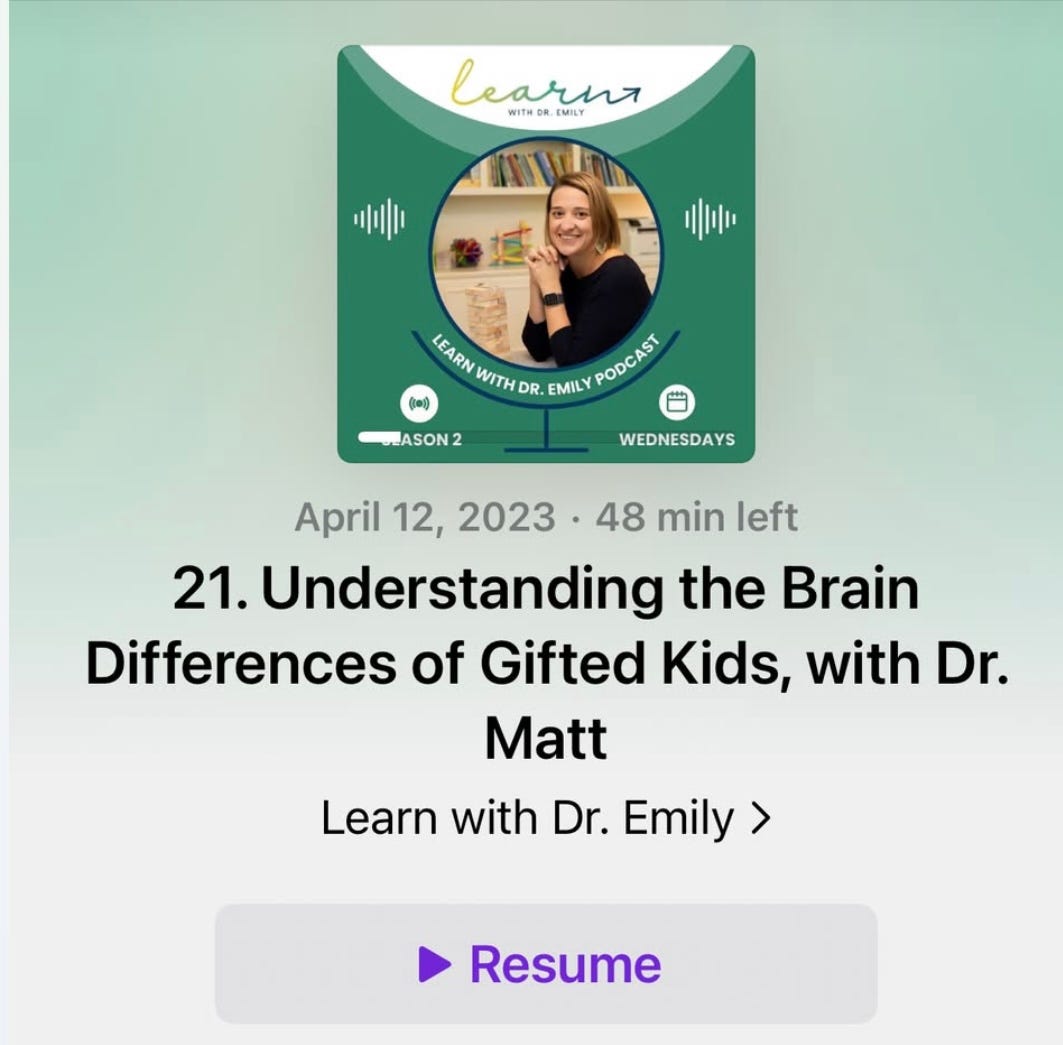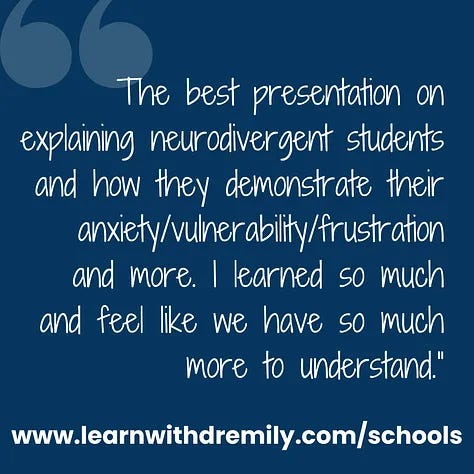Weekly Recap: But Timers Make My Kid Anxious
+ I’m scheduling back-to-school PD now
On the blog…
But Timers Make My Kid Anxious
If our kids can’t feel time, it makes sense to show them time, right? Well, this only works if they’re ready to handle the anxiety that comes when we realize we are running out of time.
As a child psychologist who works with neurodivergent kids and teens living with anxiety, I have witnessed many stress responses to timers.
I’ve seen kids put their hands over their ears at the sight of even a silent timer. I’ve received repetitive questions from kids about how long we have to play in our session.
Both of these situations indicate high anxiety about the limits of time in addition to anticipating the startling sensory experience of an alarm sounding when the fun is done.
In this week's blog post, I walk you through how to support your child through transitions using timers in a way that won't add stress to the routine.
Podcast spotlight…
Understanding the Brain Differences of Gifted Kids with Dr. Matt Zakreski
When we hear the term neurodivergence, most of us think about autism and ADHD.
But neurodivergence simply means a difference in brain functioning and that impacts gifted children, too.
On today's podcast replay, Dr. Matt Zakreski talks about the brain differences, emotional roller coaster, and social anxiety of gifted and twice-exceptional kids.
And, don't miss Dr. Matt's new book THE NEURODIVERSITY PLAYBOOK out now!
For teachers and school administrators…
My August 2025 speaking calendar is OPEN for back-to-school professional development!
I speak at schools, parent organizations, and businesses all wanting to better understand the intersection of neurodiversity, education, and mental health.
If you are a school administrator looking for professional development for your pre-K through 8th grade teachers, you’re in the right place!
I’m available in-person in the Triangle area of North Carolina and virtually.
Topics available include understanding neurodiversity, how anxiety impacts learning, reframing student behavior, teacher mental wellness, creating an inclusive classroom community, and effective collaboration with parents.








